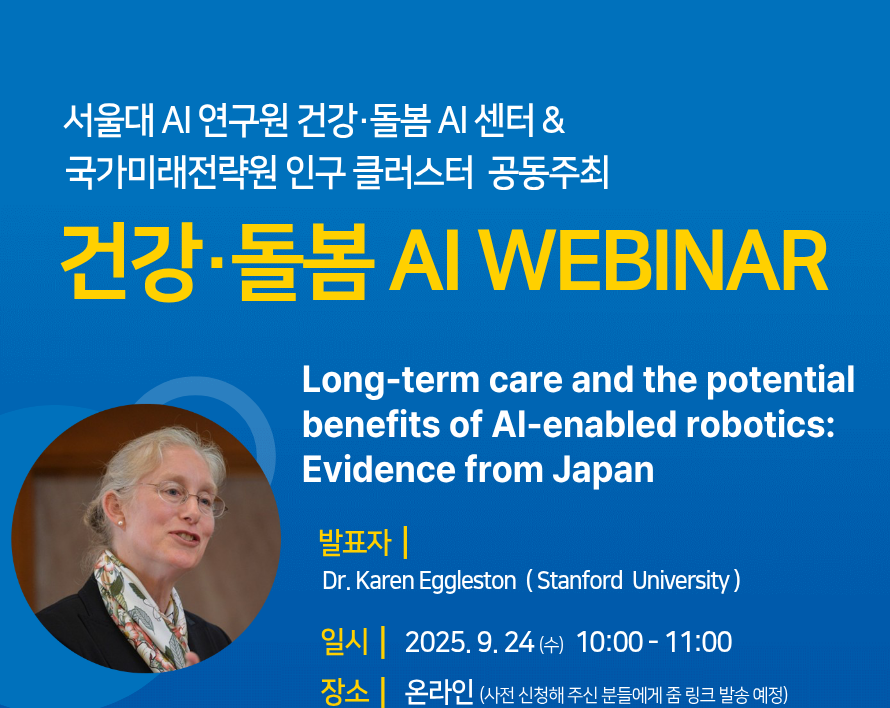AI-enabled robotics holds great potential to support care for older adults, allowing caregivers to focus more on the ‘human touch’ activities that improve quality of life both in the community and in residential care settings. Although widespread usage remains far in the future, the increasing adoption of kaigo robots in Japan’s long-term care facilities provides some indication of the ways in which these new technologies can augment care quality in aging societies and reduce the burdens on caregivers. In this seminar, Dr. Eggleston discusses joint research with Drs. Toshiaki Iizuka (U. Tokyo) & Yong Suk Lee (Stanford U.) on robots and labor in Japanese nursing homes, examining how employment, tasks, and productivity change with kaigo robot adoption. Unlike manufacturing, little is known about these issues in the service sector, where robot adoption is expanding. As a first step towards filling this gap, we study Japanese nursing homes using original facility-level panel data that includes the different robots used and the tasks performed.

